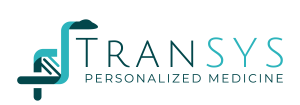Ron van Schaik
Professor Pharmacogenetics
Head of Dept Clinical Chemistry
Dept Clinical Chemistry, Erasmus MC Rotterdam,
The Netherlands
Translating Pharmacogenetic Research into a Clinical Oncology setting
Abstract:
The discovery that the metabolism of drugs is highly variable between patients, and can be predicted (to a certain level) by DNA analysis of drug metabolizing enzyme genes, paved the way for translating pharmacogenetics into clinical care. Key in this are thecytochrome P450 enzymes, with CYP2D6 (involved in the metabolism of 20% of all drugs) and CYP3A4 as major players. For CYP2D6, 5-10% of the population is deficient, making that standard doses prescribed to these patients increase the risk of adverse drug reactions. Upfront knowledge of this genetic information will enable personalization of drug therapy. With respect to oncology, genetic analysis for CYP2D6/tamoxifen, CYP3A4, DPYD/capecitabine and UGT1A1/irinotecan have potential benefits for optimizing drug therapy. The research performed, and its subsequent (lack of) uptake in clinical care will be discussed.
Key references:
CYP450 pharmacogenetics for personalizing cancer therapy. van Schaik RH. Drug Resist Updat. 2008 Jun;11(3):77-98; PMID: 18486526. Review.
Biography:
Prof. Dr. Ron van Schaik (PhD, FACB) is a registered European Specialist Laboratory Medicine and a Full Professor of Pharmacogenetics. He is head of the Dept. Clinical Chemistry at the Erasmus MC University Medical Center Rotterdam, and Director of the International (IFCC) Expertcenter for Pharmacogenetics. Main interest is the implementation of pharmacogenetics in clinical practice. He published over 350 peer reviewed articles in this field. Specific research topics oncology, cardiology, psychiatry and pain medication. Prof van Schaik participates in several national and international groups on Pharmacogenetics, such as ESPT (Co-Founder/Past President), PGRN (founding member), CPIC, DPWG, IUPHAR, EMA, PharmVar and AMP. In 2001, he received the Ortho Clinical Diagnostics Award for Outstanding Research, in 2009 the AACC Outstanding Speaker Award, and in 2010 the AACC/Mol Pathology Award for Outstanding Scientific Research. h-index 75 (Google Scholar).
Return to School information


